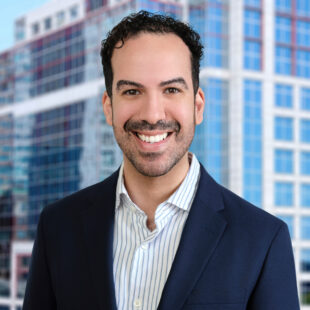In issuing its opinion in Babaletos v. Demoulas Super Markets, Inc., et al., 493 Mass. 460 (2024), the SJC held that a judge “has broad discretion over setting a schedule for the presentation of evidence, so long as exercise of that discretion is reasonable and does not interfere with a party’s right to present his or her case.” 493 Mass. at 465.
The issue on appeal in Babaletos was whether the time limitations imposed by the trial judge for the presentation of evidence at the wrongful death trial constituted an abuse of discretion. Id. at 461. The plaintiff, Joni Babaletos brought a wrongful death action as personal representative of the estate of her late husband, Thomas Babaletos, against the defendants, Demoulas Super Markets, Inc., Philip Morris USA Inc., and R.J. Reynolds Tobacco Company, alleging that the cigarettes produced and sold by the defendants caused her husband’s death from cancer. Id. Following several weeks of trial, a jury found for the defendants and no liability was found with respect to the defendants. Id. Thereafter, plaintiff brought this appeal challenging the trial judge’s imposition of time limits, which caused her to forgo the presentation of key evidence, including the testimony of her addiction expert, her expert on economic damages and the prior recorded testimony of several former executives of the tobacco company defendants. Id. The plaintiff, however, made a fatal mistake at trial – she never objected to the imposition of time limits or requested an extension of time to present evidence. Id. at 464.
The SJC noted that the “schedule as set by the trial judge was subject to change, driven by the parties’ abilities to put on their cases. The judge, however, can only be expected to exercise his discretion to extend time limits in response to developments at trial if a party represents such a need to the court.” Babaletos, 493 Mass. at 467. In this case, the “plaintiff [ ] simply never provided the kind of input the judge invited. Specifically, not once after trial began did the plaintiff ask for the extension of a half day to a full day, nor did the plaintiff ever connect general pretrial objections to an actualized need during trial to forgo specific evidence.” Id.
While the plaintiff argued that as a result of the time limitations, she had to forgo the testimony of several key witnesses, the SJC determined it could not have known on appeal whether or not “the trial judge would have granted or denied the plaintiff’s request for more time had the plaintiff, for example, requested during trial that a half day be extended to a full day to allow for such testimony, as the trial judge specifically offered to do.” Id. The Court noted that “had the plaintiff in fact requested as much and had the trial judge elected to honor the request—which his earlier offer indicated was likely—the plaintiff would have had two more hours, in addition to the twenty minutes she forwent at trial, to present additional evidence… Without any input of this kind from the plaintiff, it cannot be said that the trial judge abused his discretion. Given the plaintiff’s failure in this regard, she cannot demonstrate how she was prejudiced, or that the judge abused his discretion.” Id. In conclusion, the SJC found that the plaintiff was not prejudiced and that the trial judge has broad discretion to impose time limits as necessary to “control its docket.” Id. at 465, 468.
The opinion serves as a good reminder to practitioners on efficiency at trial and guidance for judges to consider when deciding whether to impose time limitations at trial. “A trial judge should perform an informed analysis of case-specific circumstances, including but not limited to the complexity of a case and the parties’ representations of their needs.” Babaletos, 493 Mass. at 466. “Flexibility is essential,” and judges should “reassess imposed time limits in light of evolving circumstances at trial.” Id. Other factors such as “whether the moving party has used the time allotted reasonably so far, complied with orders, and explained sufficiently why additional time is needed and how it would be used,” are relevant when considering a request for increased time during trial. Id.
Following the COVID-19 pandemic, there has been a significant backlog of cases in the trial courts pushing trials out by nearly one to two years. Additionally, while the trial courts have been working expediently to hear each case, there is also a shortage of trial judges. As such, this decision provides a helpful reminder to practitioners and judges alike of the judge’s discretion to control the docket and set reasonable time limitations, and for trial attorneys to be efficient with the Court’s time – with the flexibility of additional time where necessary.





